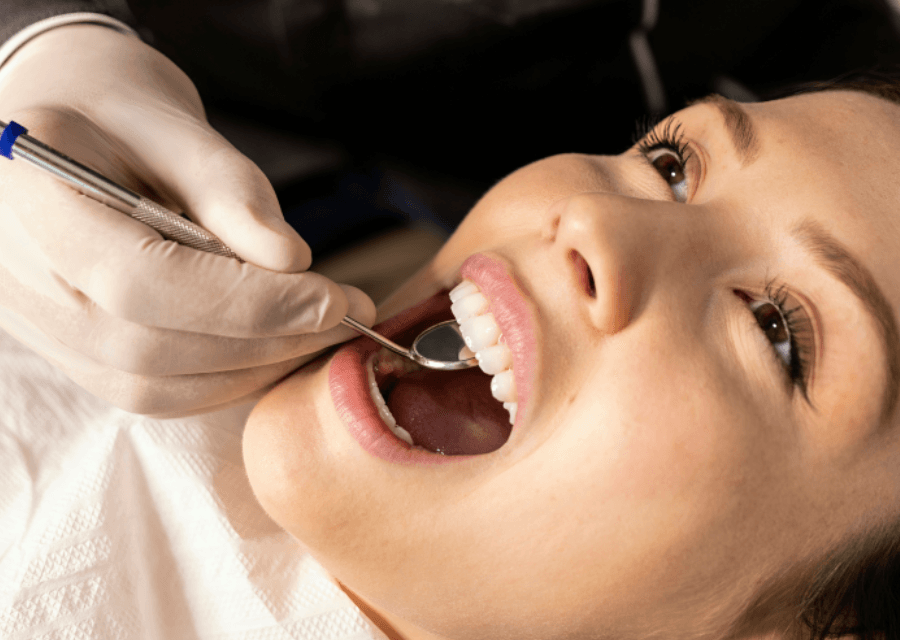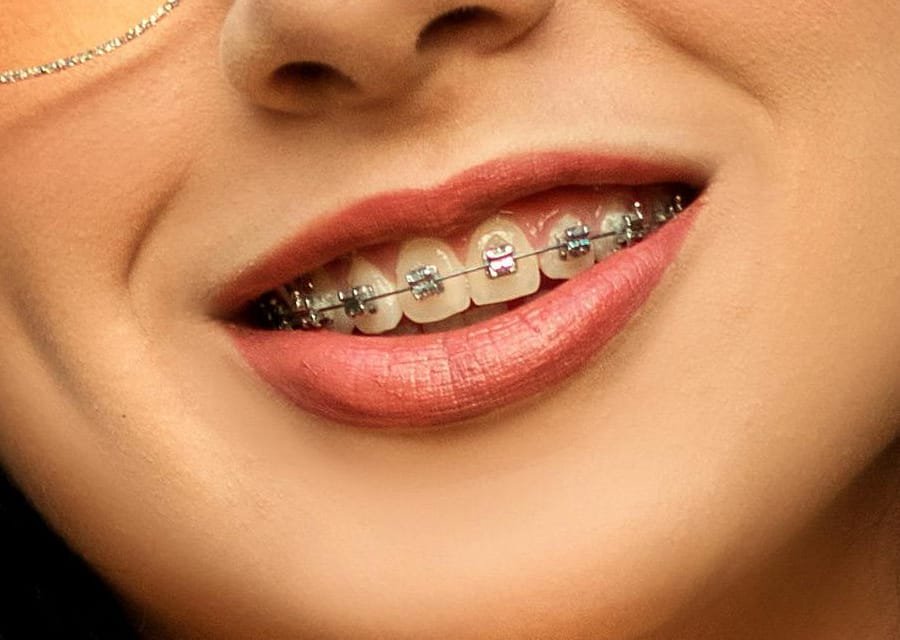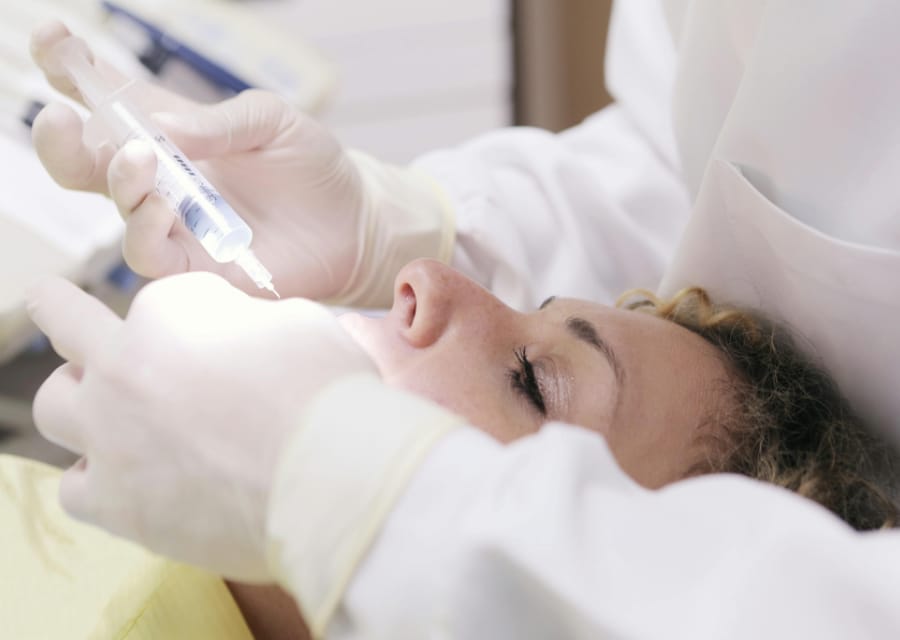
Oral health is about more than just having a beautiful smile—it’s crucial for your overall well-being. Regular dental check-ups not only help prevent common issues like cavities and gum disease but also play an important role in detecting serious conditions, including tongue cancer. Early detection of tongue cancer can significantly improve the chances of successful treatment and a dental check-up is one of the best ways to catch it in its early stages.
In this blog post, we will explore why regular visits to the dentist are essential for both preventing and detecting tongue cancer and how your dental care provider can be your first line of defense against this serious condition.
What is Tongue Cancer?
Tongue cancer is a type of oral cancer that affects the cells in the tongue. It can develop on the top surface or the underside of the tongue and is more commonly found in people over the age of 40, although younger individuals can also be affected. Like other cancers, tongue cancer can spread (or metastasize) to other parts of the body if not detected and treated early.
Some early signs of tongue cancer may include:
- A persistent sore or ulcer on the tongue that doesn’t heal.
- Pain or difficulty when swallowing.
- A lump or thickening on the tongue.
- Unexplained bleeding from the mouth.
- Changes in voice or speech.
The Role of Dentists in Detecting Tongue Cancer
While you might think that detecting tongue cancer would require a visit to a specialist, your dentist is actually one of the first healthcare providers who can spot the early signs of this disease. Dentists are trained to conduct thorough oral cancer screenings as part of your regular check-up. During these screenings, they look for any unusual changes in the tissues of your mouth, including your tongue.
Dentists examine:
- The appearance and texture of your tongue, gums and the inside of your cheeks.
- Any signs of swelling, lumps or ulcers that might indicate a problem.
- Areas that are sore or bleeding without any clear cause.
Since tongue cancer in its early stages may not cause pain or obvious symptoms, it can easily go unnoticed by you. That’s why routine dental visits are so important—they provide an opportunity for a professional to catch any issues before they become more serious.
How Regular Dental Check-ups Help Prevent Tongue Cancer
While a dental check-up doesn’t directly prevent tongue cancer, regular visits can reduce your risk by helping you manage the factors that contribute to its development. Here’s how:
- Early Detection of Risk Factors
Certain lifestyle habits and conditions increase the risk of developing tongue cancer. These include:
- Tobacco use (smoking or chewing).
- Heavy alcohol consumption.
- Poor oral hygiene, which can lead to conditions like gum disease.
- A family history of cancer.
- Human papillomavirus (HPV) infection.
During your dental visits, your dentist can discuss these risk factors with you and help you develop strategies to reduce them. For example, they might advise you to quit smoking or limit alcohol consumption. They may also guide you on proper oral hygiene to reduce your risk of developing oral diseases, which can increase the likelihood of oral cancers.
- Good Oral Hygiene Reduces Inflammation and Infection
Maintaining good oral hygiene is one of the best ways to reduce the risk of developing many types of oral cancers, including tongue cancer. Chronic inflammation caused by gum disease or infection in the mouth can contribute to the development of cancer. Your dentist will clean your teeth and gums thoroughly during your check-up and look for signs of gum disease, cavities or other infections that might need attention.
By keeping your mouth healthy, you can lower the risk of inflammation and infection, which in turn may lower your risk of developing tongue cancer.
- Detecting HPV Early
Human papillomavirus (HPV), a virus that can be transmitted through oral sex, is increasingly recognized as a significant cause of oropharyngeal cancers, including cancers of the tongue. While there is no direct test for HPV during a dental exam, your dentist can discuss HPV vaccination, which can significantly reduce the risk of certain types of HPV that lead to cancer. Additionally, they can inform you about symptoms or signs that you should be aware of, encouraging you to seek medical attention if needed.
- Screening for Other Early Signs of Cancer
Dentists are also skilled in identifying other precancerous conditions, such as leukoplakia (white patches in the mouth) or erythroplakia (red patches). These conditions, while not cancer themselves, can increase the likelihood of developing cancer. Regular check-ups give your dentist the chance to spot these changes early and refer you to a specialist for further examination or biopsy if necessary.
The Importance of Early Detection
The earlier tongue cancer is detected, the more treatable it is. In its early stages, tongue cancer is often localized and confined to the tongue, which means that with the right treatment, the chances of recovery are much higher. Treatment might involve surgery, radiation or a combination of both, depending on the severity of the cancer.
However, if tongue cancer is not caught early, it can spread to other parts of the body, making it more difficult to treat. This is why routine dental check-ups are so crucial—they offer a simple and effective way to catch tongue cancer before it reaches a later, more dangerous stage.
What to Expect During a Dental Check-up
A typical dental check-up includes a thorough examination of your teeth, gums and mouth. Your dentist will:
- Clean your teeth and remove plaque and tartar.
- Check for cavities, gum disease and other oral health issues.
- Conduct an oral cancer screening, where they examine the tongue, cheeks, gums and other parts of the mouth for unusual signs.
- Take X-rays if necessary to check for underlying issues.
If your dentist notices any abnormalities, they may refer you for further testing, such as a biopsy or a visit to an oral surgeon or oncologist.
Conclusion
Regular dental check-ups are a key part of maintaining good oral health and preventing serious conditions like tongue cancer. While you might visit your dentist primarily for a cleaning or to address dental issues, they are also trained to detect early signs of cancer and other health concerns. By attending routine check-ups, you can catch tongue cancer in its early stages when it is most treatable and also reduce your risk by addressing lifestyle factors that contribute to oral cancer.
If you haven’t had a dental check-up in a while, consider scheduling one soon. Your dentist can help protect not just your smile, but your overall health as well. Regular visits are one of the easiest and most effective ways to stay ahead of potential problems and ensure that you’re doing everything you can to protect yourself from serious conditions like tongue cancer.
To schedule an appointment at ‘Sukumar Dental Clinic’ call +91-7418210108 or WhatsApp Dr. Sukumar at +91-9655225002. We take pride in having the top dental clinic in Palayamkottai, Tirunelveli. Alternatively, you can email us at info@sukumardental.com


